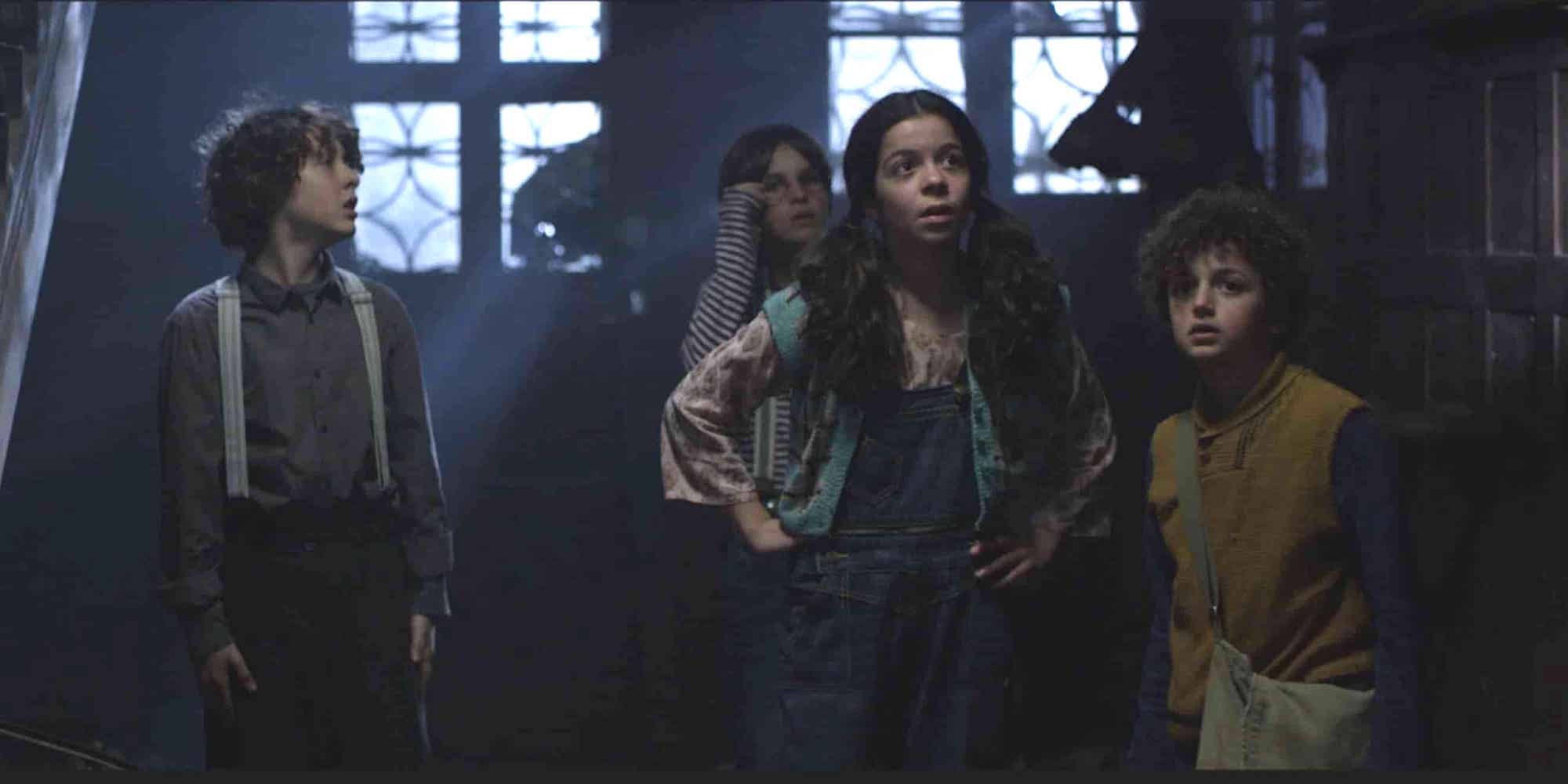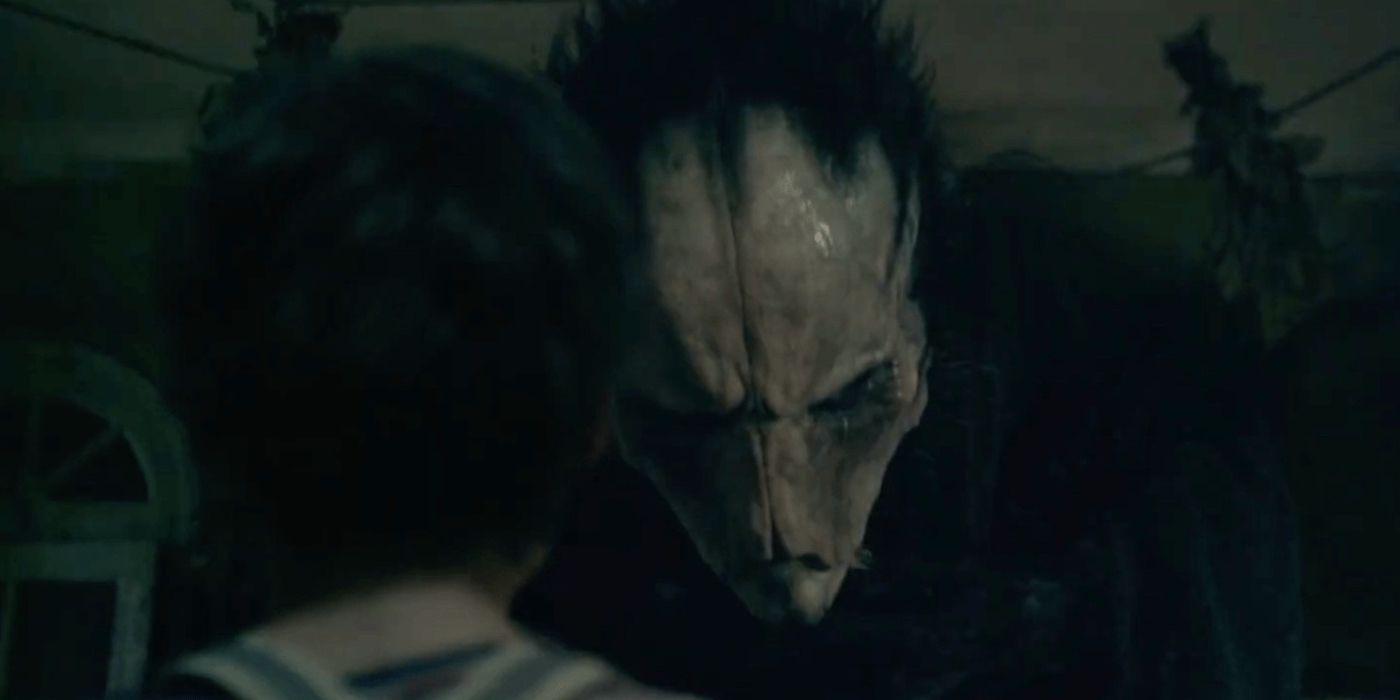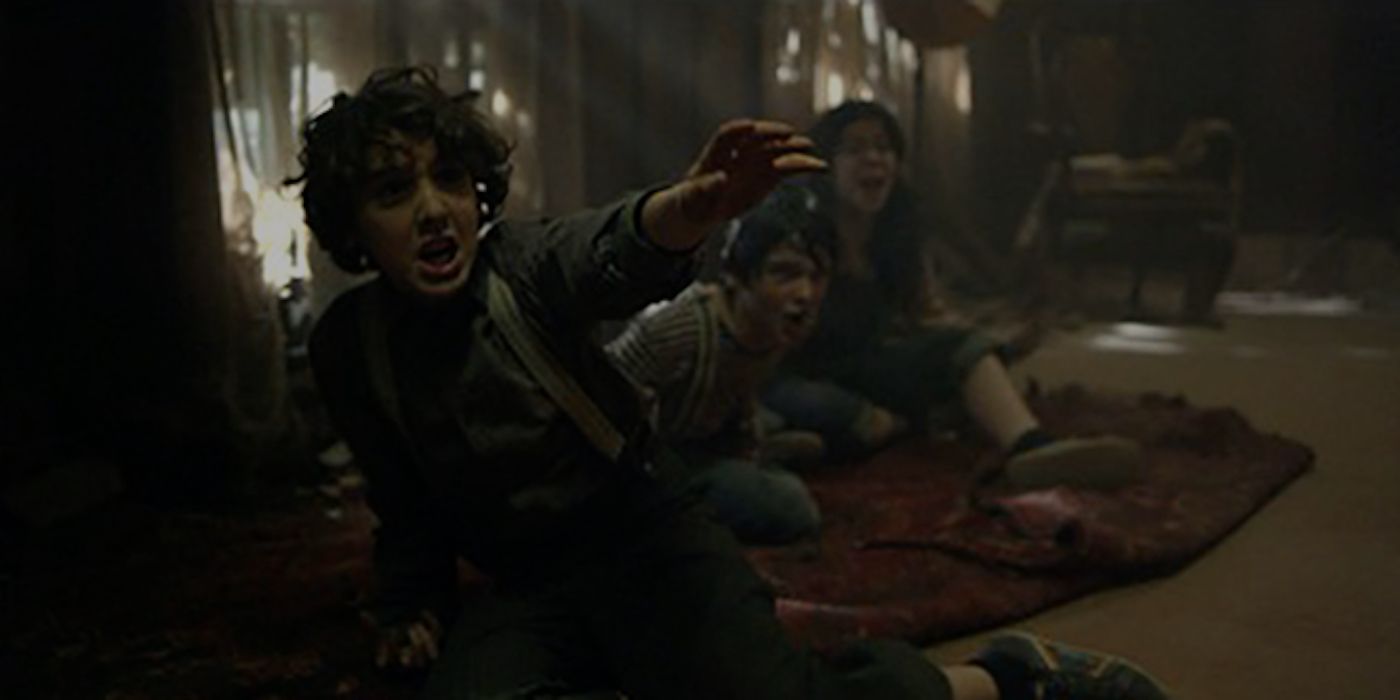Achoura Review: A Dark & Twisted Moroccan Horror With A Few Hiccups
Selhami’s directing, paired with Mathieu de Montgrand’s cinematography, transports viewers to Morocco, offering pure joy & unfathomable darkness.
You Are Reading :Achoura Review A Dark & Twisted Moroccan Horror With A Few Hiccups

There have always been stories — birthed from mythology and folklore — that are told to children (to put them to sleep, keep them in bed, or out of trouble). Sometimes, these tales can be nightmare-inducing due to children’s active imagination, but nothing is more terrifying than a seemingly harmless story coming to life. Such is the case in Achoura, a Moroccan horror thriller directed by Talal Selhami from a screenplay by Selhami, Jawad Lahlou, and David Villemin.
Achoura follows Ali (Younes Bouab), Nadia (Sofiia Manousha), and Stéphane (Iván González), who are haunted by the disappearance of their friend and Ali’s brother, Samir (Omar Lotfi) 25 years prior. However, when Samir miraculously returns, the truth of what happened becomes clearer as they realize that, in their own ways, they have forgotten or suppressed what really happened at the haunted and abandoned French House where Samir disappeared. Soon they are in a battle for their lives against a child-abducting djinn that awakens during the Islamic holiday Ashura.

The film is an atmospheric horror about a powerful djinn that feasts on innocent children. The children who survive the encounter forget about it over time, but the trickster still finds a way to encourage unsuspecting children to free it so it may continue to feast. Fans of Issa Lopez’s Tigers Are Not Afraid, Jennifer Kent’s The Babadook, Stephen King’s IT and Guillermo del Toro’s Pan’s Labyrinth will find Selhami’s Achoura just as enamoring. The film speaks to the naivety of children as the darkness of the world attempts to tear them apart and steal their innocence. Just as all these films speak to much larger issues and themes, Achoura is no different. It’s spooky and unsettling, with a constant feeling of doom that is ever present in each frame. There is a tangible somberness to the film that lets the stress and anxiety of the situation fester within, and that unease can only be captured by an exceptional creative team.
The film captures the audience’s attention from the very beginning, with an eerie opening juxtaposed with kids laughing and enjoying the festivities. Selhami’s directing, paired with Mathieu de Montgrand’s cinematography, transports viewers to the scenic Morocco, offering imagery of pure joy and unfathomable darkness. Montgrand’s cinematography is notable as it aids the easy transition for the CGI-created djinn, creating an environment in which it can exist alongside the actors without feeling out of place or jarring. Romain Paillot’s musical score adds a layer of suspense and dark whimsy. Their joint efforts create a truly immersive and atmospheric horror shrouded in darkness that plays with one’s imagination.

It should be noted that production on Achoura occurred before the filming of the recent film adaptations of Stephen King’s IT by Andy Muschetti. There are strong parallels to the story of Pennywise and the Losers Club, and other distractingly similar imagery, that threatens to do a disservice to Achoura. However, as far as those similarities go, the film offers a unique look into another culture’s folklore. Stories about fears, trauma and the loss of innocence aren’t unique to American writers, but it can be distracting if one cares to see something different and more fully steeped in cultural relevance. Additionally, the film, while well crafted, stumbles in its third act as it attempts to wrap up the final showdown between the adults and the djinn that hunts them. With a promising narrative and exceptional performances, the film fumbles under the pressure to stand on its own.
The film’s narrative revolves around the religious holiday of Ashura and the traditional practice which involves children dancing around a bonfire throwing water at each other. The opening makes note of this as it is relevant to how the protagonists interact with the djinn later on, but the film never truly bridges the two pieces together effectively. The backstory on the djinn is extensive, but the characters don’t ever seem to fully comprehend what they are up against and how they are to defeat the djinn. It isn’t just the film that stumbles towards its conclusions, so do the severely underdeveloped protagonists. Selhami, Lahlou, and Villemin do enough to give these characters drive and purpose, but the script as a whole is lacking that connective tissue that brings all the elements together.
Despite a few minor hiccups, Achoura is still a worthwhile experience. It is an opportunity to delve into horror from regions of the world that are also tapping into the wealth of stories that come from myth, culture, history, and religion. Achoura is by no means a bad film — quite the opposite in fact. There is potential for Selhami’s career as a horror writer-director as his vision and ambition shine bright through his film.
Link Source : https://screenrant.com/achoura-2021-movie-reviews/
